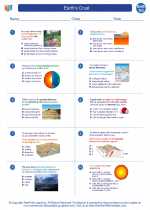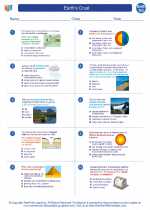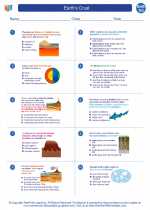Modern Physics
Modern physics is the branch of physics that focuses on the study of the fundamental building blocks of the universe and the forces that govern their interactions. It encompasses a wide range of topics, including quantum mechanics, relativity, particle physics, and cosmology. Understanding modern physics is essential for grasping the most recent scientific developments and technological advancements.
Key Concepts in Modern Physics
- Quantum Mechanics: Quantum mechanics is the study of the behavior of particles at the atomic and subatomic levels. It describes the dual nature of particles as both waves and particles, and introduces concepts such as superposition and entanglement.
- Relativity: The theory of relativity, developed by Albert Einstein, consists of two major parts: special relativity and general relativity. Special relativity deals with the behavior of objects moving at high speeds, while general relativity describes the force of gravity as the curvature of spacetime.
- Particle Physics: Particle physics focuses on the study of the fundamental particles and forces that make up the universe. It includes the Standard Model, which categorizes elementary particles and their interactions through the electromagnetic, weak, and strong nuclear forces.
- Cosmology: Cosmology is the study of the origin, evolution, and eventual fate of the universe. It incorporates concepts such as the Big Bang theory, dark matter, and dark energy.
Study Guide for Modern Physics
When studying modern physics, it's important to grasp the fundamental principles and theories that form the basis of this field. Here are some key areas to focus on:
- Understand the historical developments that led to the emergence of modern physics, including the contributions of scientists such as Max Planck, Albert Einstein, Niels Bohr, and Werner Heisenberg.
- Gain a solid understanding of quantum mechanics, including the principles of wave-particle duality, the uncertainty principle, and the Schrödinger equation.
- Explore the concepts of special relativity, such as time dilation, length contraction, and the relativistic addition of velocities.
- Delve into the principles of general relativity, including the equivalence principle, the bending of light by gravity, and the predictions of black holes and gravitational waves.
- Study the Standard Model of particle physics, familiarizing yourself with the various types of elementary particles, their properties, and the fundamental forces that govern their interactions.
- Examine key concepts in cosmology, including the expansion of the universe, the cosmic microwave background radiation, and the evidence supporting the Big Bang theory.
Additionally, it's beneficial to engage with real-world applications and current research in modern physics, as well as to seek out opportunities for hands-on experimentation and exploration of these concepts.
By mastering the principles and theories of modern physics, you'll develop a deeper understanding of the fundamental nature of the universe and the groundbreaking discoveries that continue to shape our understanding of the physical world.
.◂Earth Science Worksheets and Study Guides High School. Earth's Crust

 Worksheet/Answer key
Worksheet/Answer key
 Worksheet/Answer key
Worksheet/Answer key
 Vocabulary/Answer key
Vocabulary/Answer key
 Vocabulary/Answer key
Vocabulary/Answer key
 Vocabulary/Answer key
Vocabulary/Answer key
